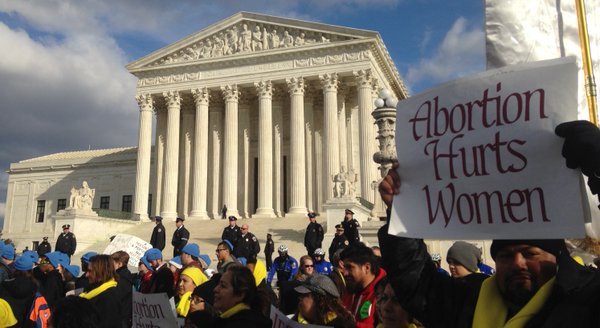Supreme Court Should Use Environmental Precedents to Stop Mail-Order Abortion Drugs

A senior lawyer this week wrote about the three different paths the Supreme Court can take in ruling on the pro-life plaintiff’s legal fight against the Food and Drug Administration over the chemical abortion pill. Alliance Defending Freedom Senior Counsel Erik Baptist wrote in the Federalist Society on June 6 that the Supreme Court is expected to […]
The post Supreme Court Should Use Environmental Precedents to Stop Mail-Order Abortion Drugs appeared first on LifeNews.com.
A senior lawyer this week wrote about the three different paths the Supreme Court can take in ruling on the pro-life plaintiff’s legal fight against the Food and Drug Administration over the chemical abortion pill.
Alliance Defending Freedom Senior Counsel Erik Baptist wrote in the Federalist Society on June 6 that the Supreme Court is expected to issue a ruling on FDA v. Alliance for Hippocratic Medicine soon.
Alliance Defending Freedom is a legal group that is representing the plaintiffs who are challenging the FDA for removing several restrictions for the chemical abortion pill mifepristone and consequently putting women who take mifepristone at higher risk of dangerous, and even fatal, side effects. Oral arguments for the case before the Supreme Court took place in March.
Baptist wrote that several legal precedents have already been set by SCOTUS in previous environmental-centered cases that are crucial to the chemical abortion-centered case.
“In both the environmental lawsuits and the pending FDA challenge, the plaintiffs seek to pursue their professional and personal interests, but the federal government’s actions prevent them from doing so while causing them emotional harm,” Baptist wrote.
Click here to sign up for pro-life news alerts from LifeNews.com
Baptist recalled that more than 30 years ago, Supreme Court Justice Antonin Scalia wrote in the opinion of the case Lujan v. Defenders of Wildlife, “[i]t is clear that the person who observes or works with a particular animal threatened by a federal decision is facing perceptible harm,” and can sue the government.
This precedent has been successfully utilized multiple times by environmental groups in their legal challenges against federal agencies, Baptist wrote: “For example, environmentalists successfully thwarted the construction of the Keystone XL Pipeline by citing their ‘professional, scientific, and aesthetic interests’ in the American burying beetle, which resided in the pipeline’s proposed pathway.”
One environmental group also sued on the basis of its members experiencing “heartbreak” after learning that a whale’s death was arguably caused by actions of the federal government, according to Baptist.
“Another group was similarly able to sue because one of its members was affected ‘emotionally’ by the alleged increased endangerment of these whales, causing her ‘heartache,’” he wrote.
Similarly, the plaintiff doctors argue that the FDA’s removal of restrictions on mifepristone has put women who take the chemical abortion pill at higher risk of ending up in an emergency room, Baptist continued:
This, in turn, causes the pro-life plaintiff OB-GYN hospitalists to divert from their desired professional goal of helping women bring new life into this world and participate in surgical interventions to treat abortion-drug complications. The doctors say it grieves them to see women harmed by the FDA’s actions. Removing the remains of a baby from the mother also causes these doctors much heartache.
During the March oral arguments, Justice Neil Gorsuch recognized the impact the precedents set by the environmental cases have on the current mifepristone case.
Additionally, the Court upheld in a previous case that the potential future harm – or “probability of injury” – caused by current actions of a federal agency justifies granting the relief sought by the plaintiff.
Baptist explained that after this, an environmental organization sued the federal government for its member who, according to the court documents, “has never yet seen a right whale and is concerned by ‘[a]nything that reduces the probability’ of her seeing one.”
Baptist continued in his June 6 article, “And the plaintiff doctors explain that restoring the safeguards that the FDA removed will likewise reduce the probability of their injuries.”
“Given its decades-old precedent,” Baptist wrote, “the Supreme Court must (1) find that the doctors can sue the FDA, (2) overrule its precedent, or (3) create a double standard. There are no other options.”
LifeNews Note: McKenna Snow writes for CatholicVote, where this column originally appeared.

The post Supreme Court Should Use Environmental Precedents to Stop Mail-Order Abortion Drugs appeared first on LifeNews.com.
